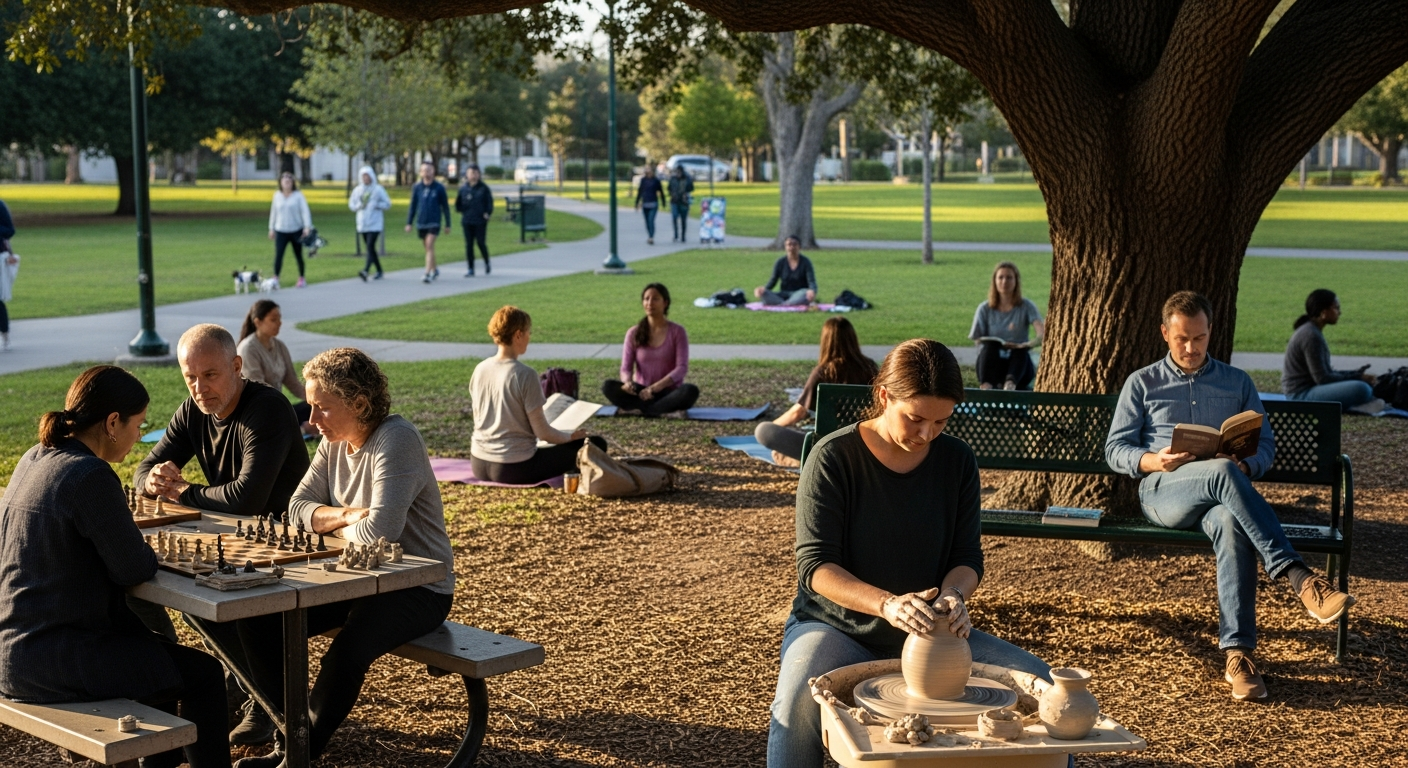Circadian Rhythm Optimization: The Key to Unlocking Peak Health
Did you know that your body's internal clock influences nearly every aspect of your well-being? From hormone production to cognitive function, our circadian rhythms orchestrate a complex symphony of biological processes. But in our 24/7 world, these delicate rhythms are often disrupted, leading to a host of health issues. What if synchronizing your lifestyle with your body's natural rhythms could revolutionize your health and vitality?

The Science Behind Circadian Rhythms
Our bodies operate on a roughly 24-hour cycle, governed by an internal master clock located in the brain’s hypothalamus. This clock, known as the suprachiasmatic nucleus (SCN), synchronizes countless biological processes, from sleep-wake cycles to hormone release and body temperature fluctuations.
Light exposure plays a crucial role in regulating this system. When light enters our eyes, it signals the SCN to suppress melatonin production and increase cortisol, promoting wakefulness. As darkness falls, this process reverses, preparing our bodies for rest and repair.
Recent research has uncovered that nearly every cell in our body contains its own circadian clock, all orchestrated by the SCN. These peripheral clocks regulate organ-specific functions, optimizing performance based on the time of day.
The Impact of Modern Lifestyles on Circadian Health
Our ancestors lived in harmony with natural light-dark cycles, but modern life has disrupted this delicate balance. Artificial lighting, late-night screen time, shift work, and irregular eating patterns all contribute to circadian misalignment.
This desynchronization can lead to a range of health issues, including:
-
Sleep disorders
-
Metabolic dysfunction
-
Increased risk of chronic diseases
-
Impaired cognitive function
-
Mood disorders
-
Weakened immune system
Recognizing the profound impact of circadian rhythms on health, researchers are now exploring ways to realign our lifestyles with our internal clocks.
Chronotherapy: Timing Interventions for Maximum Efficacy
Chronotherapy is an innovative approach that leverages our understanding of circadian rhythms to optimize medical treatments. By timing interventions to align with our body’s natural rhythms, we can enhance their effectiveness and minimize side effects.
For instance, studies have shown that the timing of cancer treatments can significantly impact their efficacy. Administering chemotherapy at specific times of day when cancer cells are most vulnerable and healthy cells are more resilient can improve outcomes and reduce adverse effects.
Similarly, the effectiveness of many medications can be enhanced by strategic timing. Blood pressure medications, for example, may be more effective when taken at night, as blood pressure naturally rises in the early morning hours.
Chrono-Nutrition: Eating in Sync with Your Body Clock
Emerging research suggests that when we eat may be just as important as what we eat. Chrono-nutrition focuses on aligning our eating patterns with our circadian rhythms to optimize metabolism and overall health.
Our digestive system, like other bodily functions, operates on a circadian schedule. Insulin sensitivity, for example, is highest in the morning and decreases throughout the day. This suggests that consuming larger meals earlier in the day and lighter meals in the evening may be more beneficial for metabolic health.
Time-restricted feeding, a form of intermittent fasting that aligns with circadian rhythms, has shown promising results in improving metabolic health, reducing inflammation, and potentially extending lifespan.
Practical Strategies for Circadian Rhythm Optimization
Implementing circadian rhythm optimization doesn’t require drastic lifestyle changes. Small, consistent adjustments can yield significant benefits:
-
Light exposure: Seek bright light exposure in the morning and limit blue light in the evening.
-
Sleep schedule: Maintain a consistent sleep-wake cycle, even on weekends.
-
Meal timing: Consider eating larger meals earlier in the day and finishing dinner at least 2-3 hours before bedtime.
-
Exercise timing: Engage in vigorous exercise earlier in the day and opt for gentle movement in the evening.
-
Temperature regulation: Keep your sleeping environment cool, as body temperature naturally drops during sleep.
Circadian Wisdom: Enhancing Your 24-Hour Health Cycle
-
Morning sunlight exposure for 10-30 minutes can help reset your circadian clock
-
The ideal room temperature for sleep is between 60-67°F (15-19°C)
-
Caffeine has a half-life of 5-6 hours, so consider avoiding it after 2 PM
-
Blue light-blocking glasses in the evening can improve sleep quality
-
Regular meal times help synchronize peripheral clocks in organs like the liver and pancreas
As we continue to unravel the intricate connections between our internal clocks and overall health, circadian rhythm optimization stands out as a powerful tool for enhancing well-being. By aligning our lifestyles with our body’s natural rhythms, we can unlock new levels of vitality, cognitive performance, and disease prevention. This holistic approach to health offers a promising path forward in our quest for optimal wellness in the modern world.






